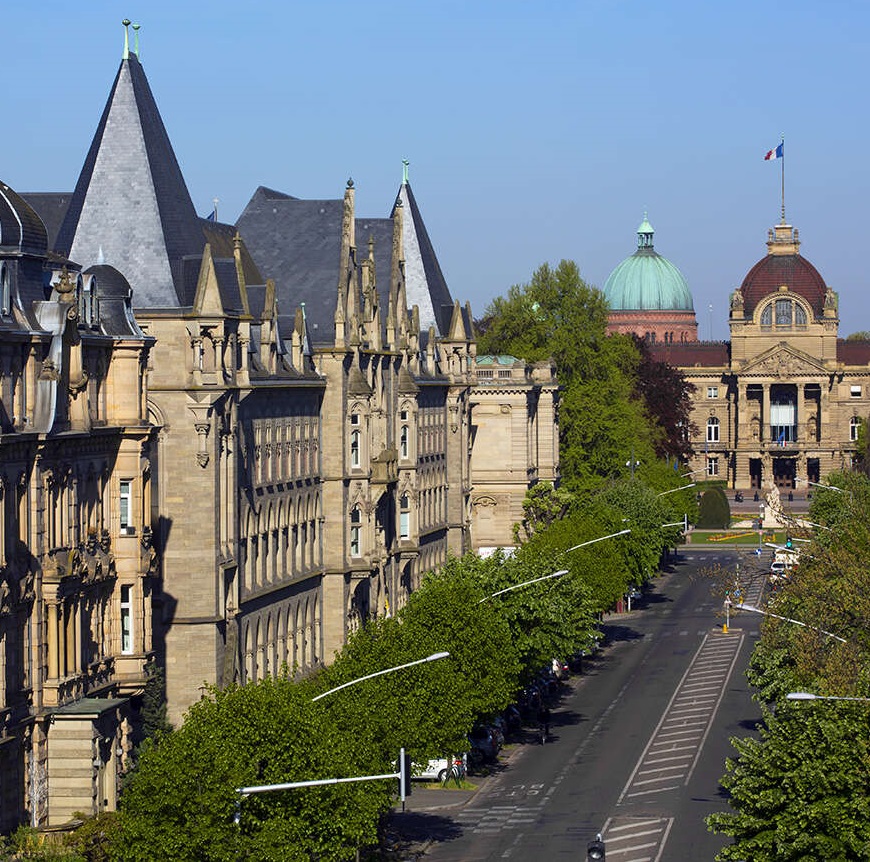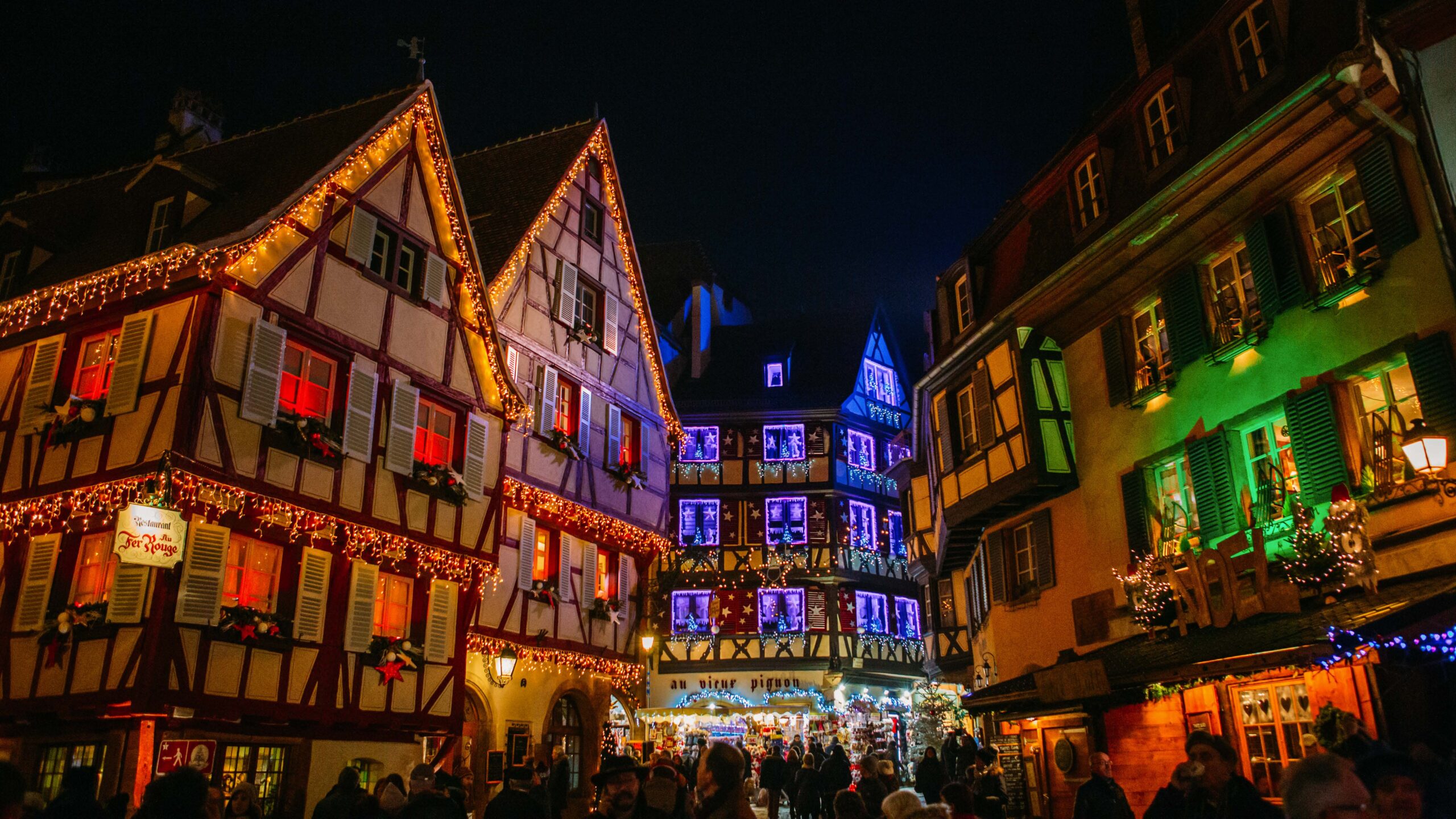
Get to know Strasbourg !
.
Quick facts about Strasbourg
- Population: 280,000 in city itself, over 1 million with surrounding towns, the 8th largest in France
- Foundation: 58 BC as Roman city of Argentorate
- Languages: French and Alsatian (local dialect of German)
- Travel time
- Paris by train, 1 hour 50 minutes
- Kehl, Germany by tram, 10 minutes
- Basel Switzerland by train, 40 minutes
More on Strasbourg from the city office of tourism website.
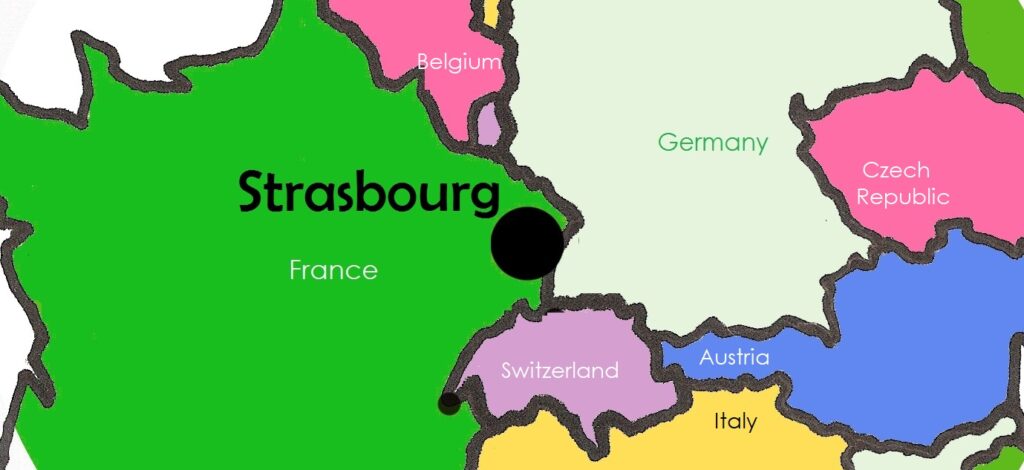
Fantastic things about Strasbourg
It’s a multicultural border city
Strasbourg sits on the Rhine river, just across from Germany. The city has gone back and forth between the two countries five times since 1870.
See for yourself: Take a stroll through the Neustadt with its German imperial architecture. Or catch the tram to Kehl, the first town in Germany, just a few minutes away.
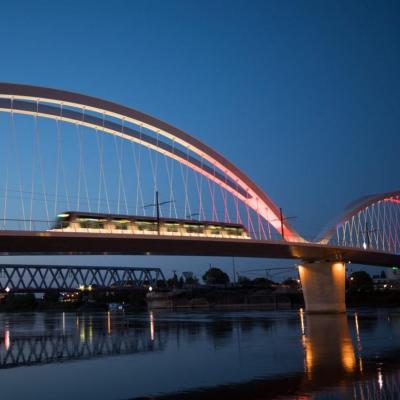
You can bike everywhere
With over 600 miles of bike lanes, Strasbourg is the most bikeable city in France. Most of the city center is closed to cars. You can take your bike on the tram and there is bike parking everywhere.
See for yourself: Every Accès student gets a bike and a helmet for the semester.
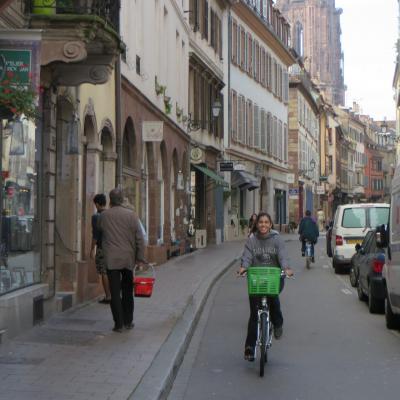
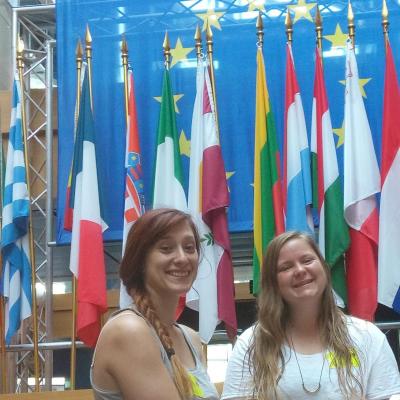
It’s a European capital
The European Parliament, the Council of Europe, Pharmacopea and the European Court of Human Rights are all headquartered in Strasbourg.
See for yourself: World leaders often come to speak at Strasbourg’s European institutions. Most meetings are free and open to the public.
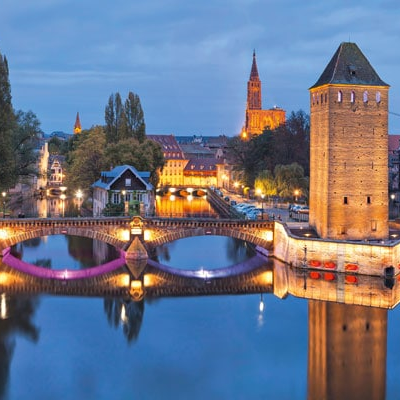
It’s really beautiful
From the gothic Notre Dame cathedral (the tallest in the country) to the narrow streets of La Petite France and the cafés along the canals, Strasbourg is one of the most breathtaking cities in Europe.
See for yourself: Most students live close to the downtown with host families or in student boarding houses
Cool things that Alsace gave the world
The Christmas Tree
The idea of decorating a pine tree at Christmas comes from Alsace in the 16th century.
Check out the Christkindelmarik, held on the Grand’Ile every December since 1570.
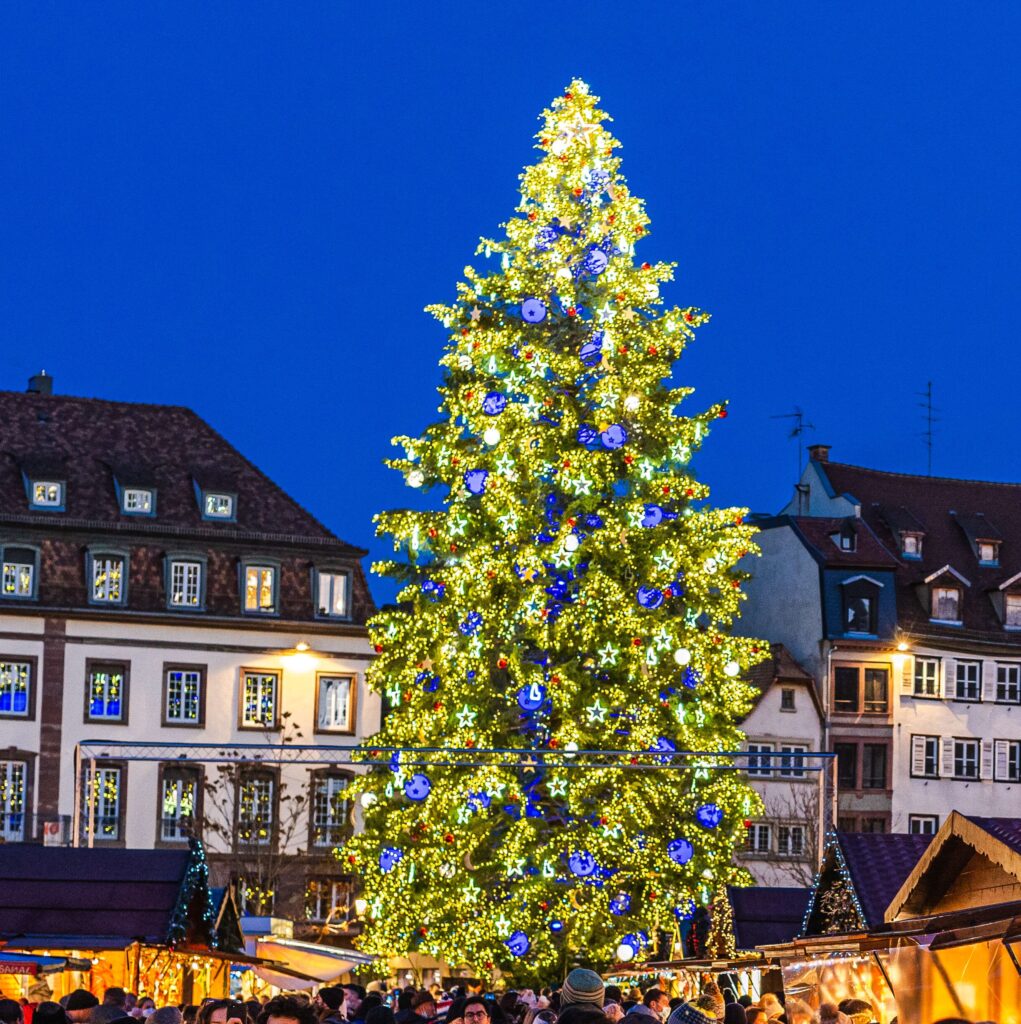
La Marseillaise
The French national anthem is named for the southern city of Marseille. But it was composed in Strasbourg by Rouget de l’Ile during the French Revolution for Alsatian soldiers to sing as they marched.
Visit the Place Brogile where the Marseillaise was first performed.
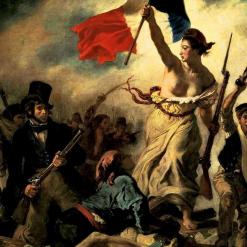
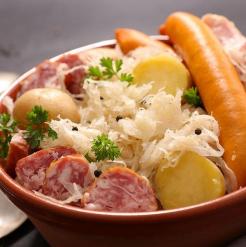
Sauerkraut
Slow-cooked in white wine and served with a potatoes, knack sausages and smoked meats, “choucroute strasbourgoise” is an Alsatian specialty.
Try it out at a local restaurant like La Maison Kammerzell.
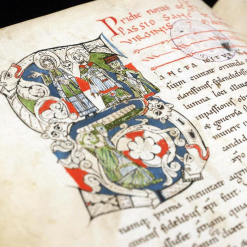
Printing
The invention of moveable type printing by Johannes Gutenberg in Strasbourg revolutionized the diffusion of ideas throughout Europe and the world.
Learn more at the Bibliothèque Humaniste in Sélestat.
The world’s fastest car
The factory founded by Etorri Bugatti in Molsheim in 1909 still custom designs sports cars, including the Veyron.
See one firsthand at the Bugatti foundation in Molsheim or the Cité de l’Automobile in Mulhouse.just a few minutes away.
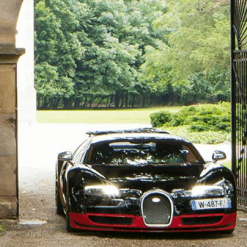
Storks
The cigogne is supposed to bring good luck in Alsace, especially if it nests on your house. And that’s probably where the idea of storks delivering babies comes from.
See for yourself: there are dozens of nesting pairs in Strasbourg’s Parc de l’Orangerie
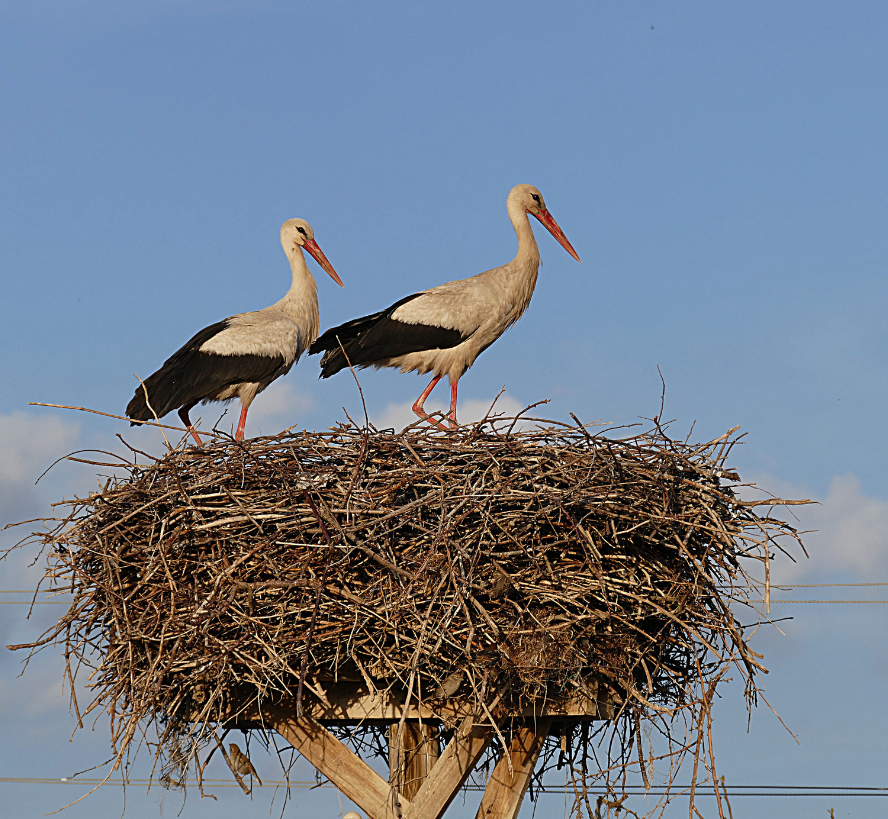
Famous people from Strasbourg and the region of Alsace
Louis Pasteur
S1822-1895, Chemist, Microbiologist. Inventor of the pasteurization technique for preserving dairy products. Developed vaccine for rabies. Professor at University of Strasbourg
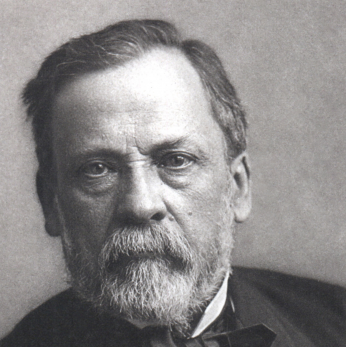
Louise Weiss
1893-1983, Journalist, Political activist, Member European Parliament. Early advocate for women’s suffrage in France. Founder of newspaper L’Europe Nouvelle. Elected MEP and President of European Parliament
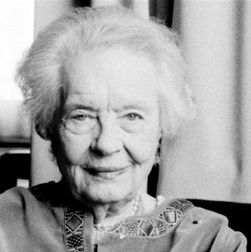
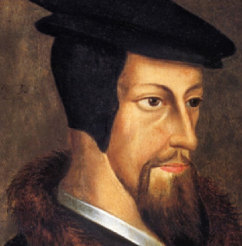
Jean Calvin
1509-1564 Theologian, One of the main protagonists of the Protestant Reformation. Exiled in Strasbourg where he works as pastor and writes The Institutions of the Christian Religion.
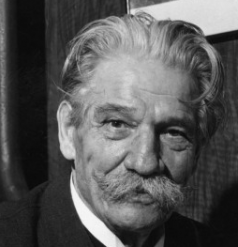
Albert Schweitzer
1875-1965 Polymath, Medical doctor, Theologian, Organist, Founder of hospital of tropical medecine in Lambaréné, Gabon, Winner of Nobel Peace Prize 1952
Johannes Gutenberg
1400-1468 Inventor of moveable type printing, a technological breakthrough that puts Strasbourg at the center of the Reformation and the Rhenan Renaissance. (Gutenberg is also the inspiration for the Accès logo.)
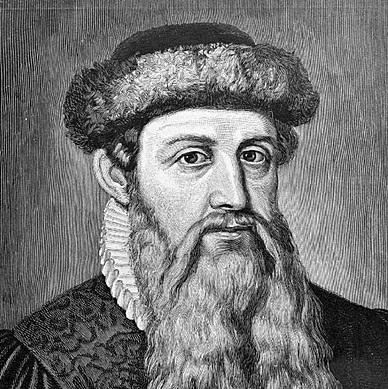
Odile de Hohenbourg
660-720 Abbess and founder of the monastery at Hohenbourg in the Vosges mountains. Today the monastery is a Catholic pilgrimage site and popular hiking destination. She is the patron saint of Alsace and the blind.
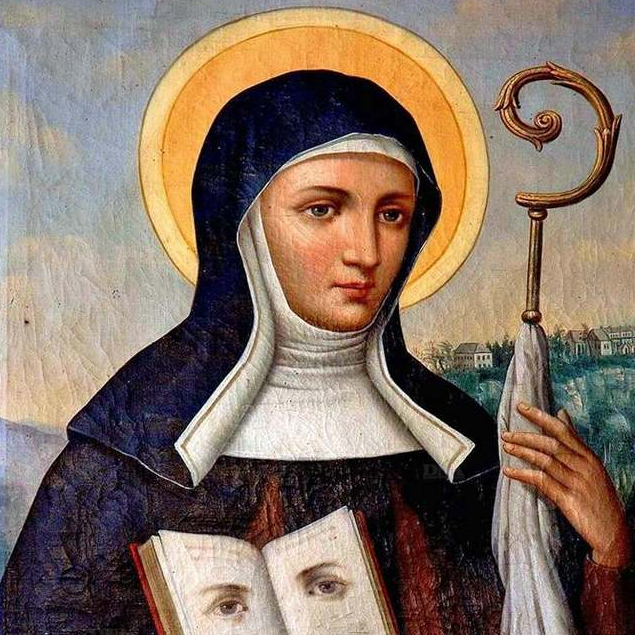
Students’ favorite neighborhoods
La Krutenau
Student quarter along the Ill river near the university campus. Home to Gallia student residence, lots of cafés and a street market on the rue de Zurich. Several “péniches” along the quai de l’Ill are floating night clubs.
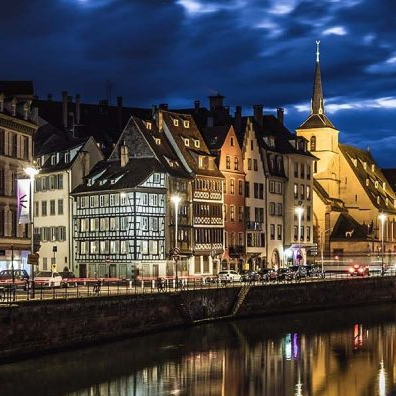
La Petite France
Iconic neighborhood in the town center with its beautifully preserved medieval houses. Don’t miss the view from the platform of the Barrage Vauban.
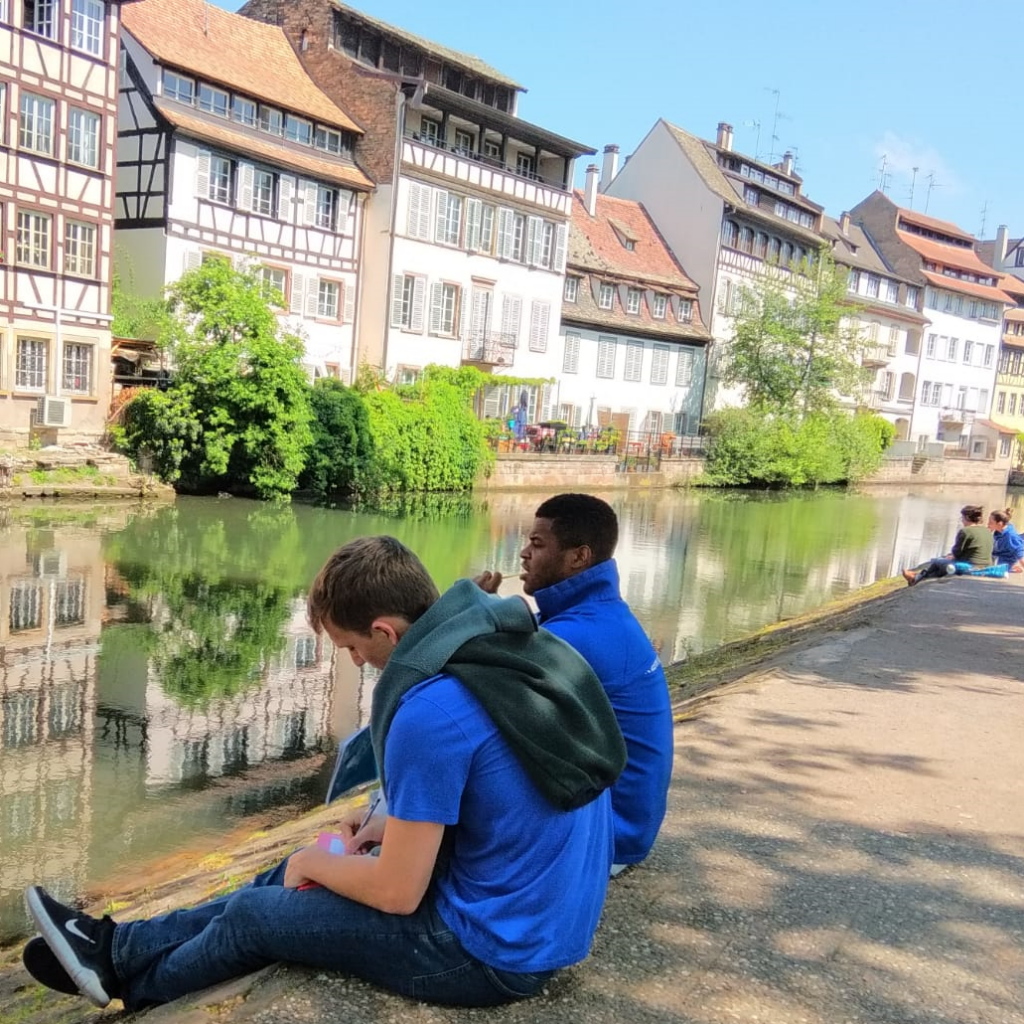
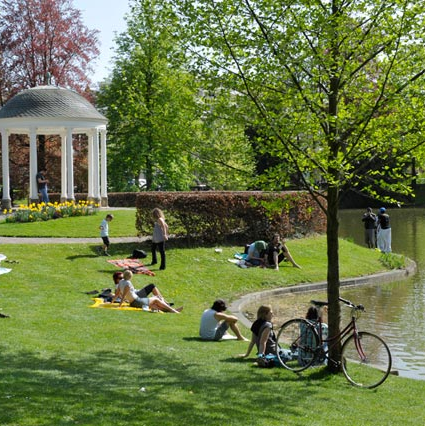
Orangerie
A peaceful haven in the heart of the European district. You can rent a row boat on the lake or attend a concert in the Pavillon Joséphone. The Robertsau forest with its miles of bike paths is nearby.
Kléber
The main square in the center of the city is always a hub of activity for street markets, concerts and events.
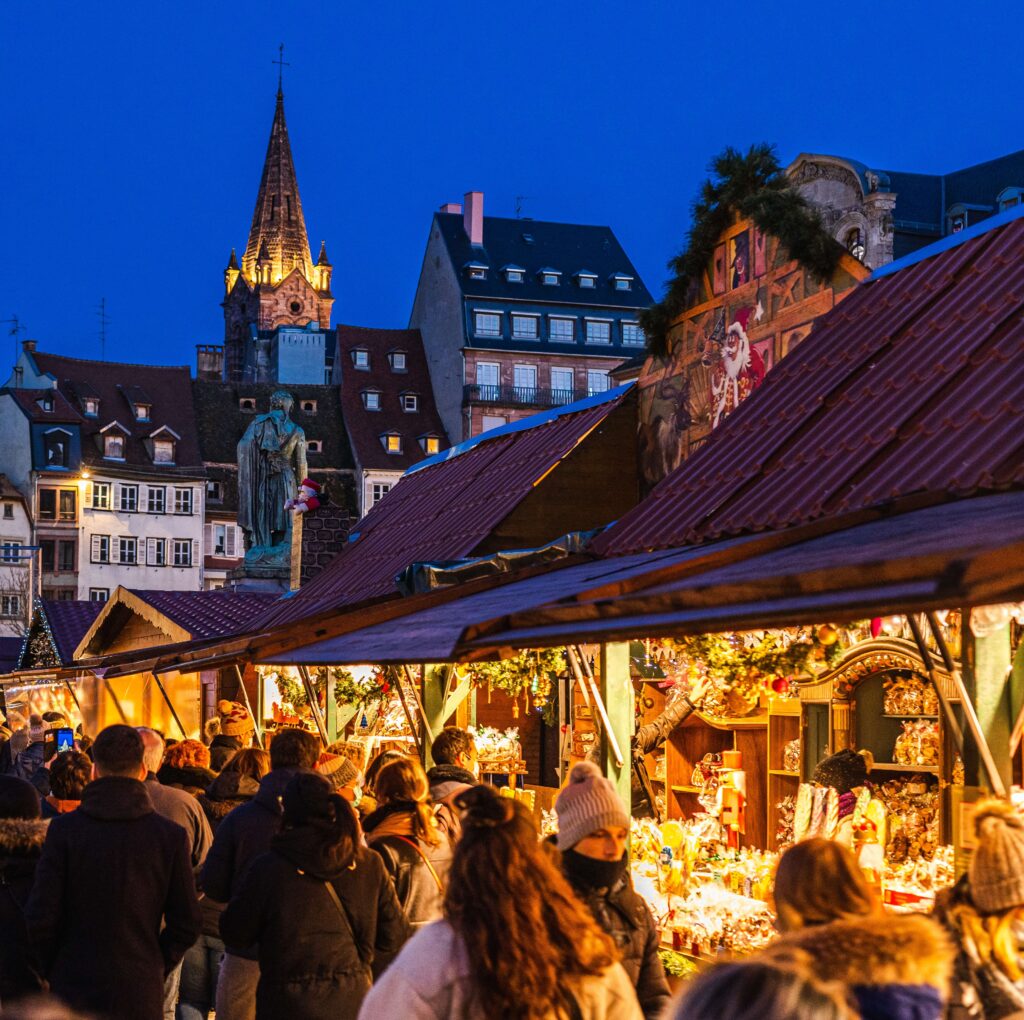
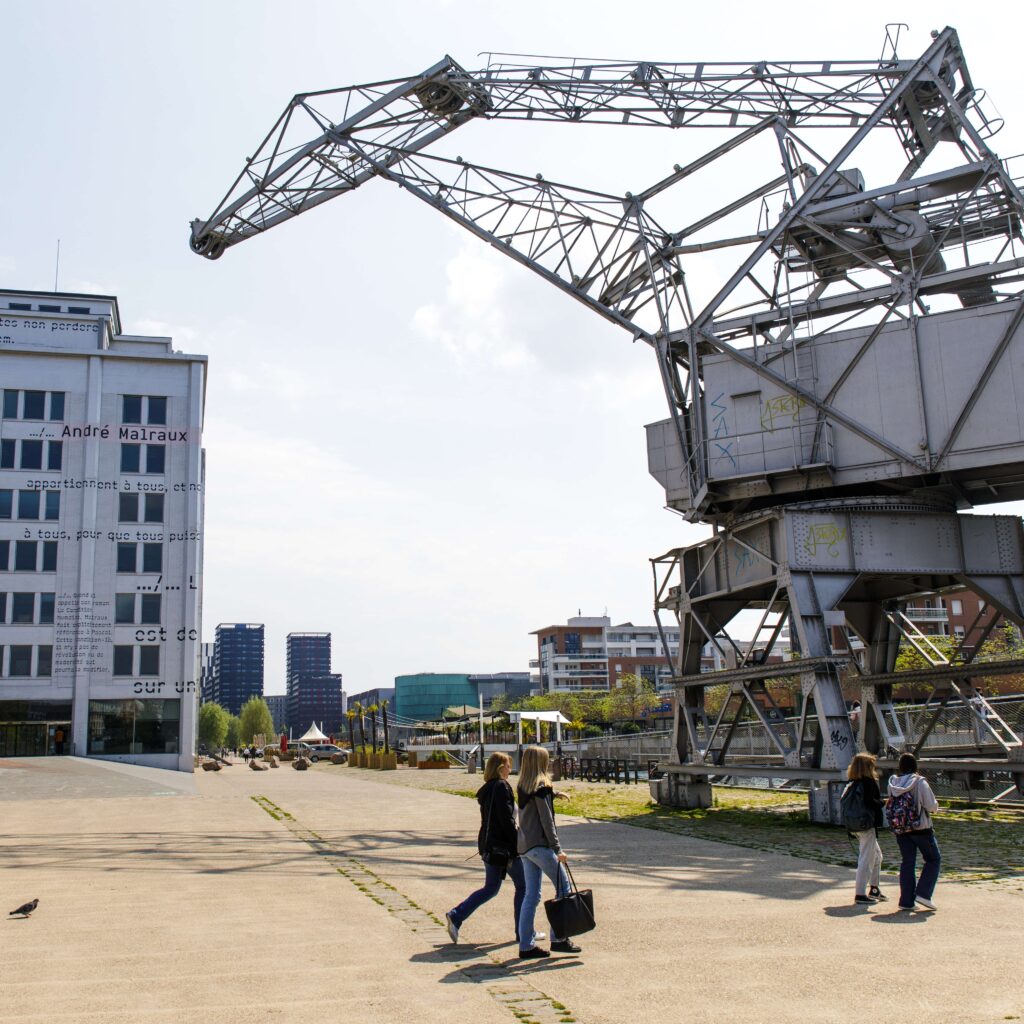
Neudorf
The former port is best known for the Riv’étoile complex along the canal: cinema, shopping center, music conservatory and library. A bit farther south Neudorf becomes a village in the city. Check out the farmers market or the Scala Theater.
Les quais de l’Ill
The paths and footbridges along the canals are great places to take a walk or grab a bite to eat between classes.
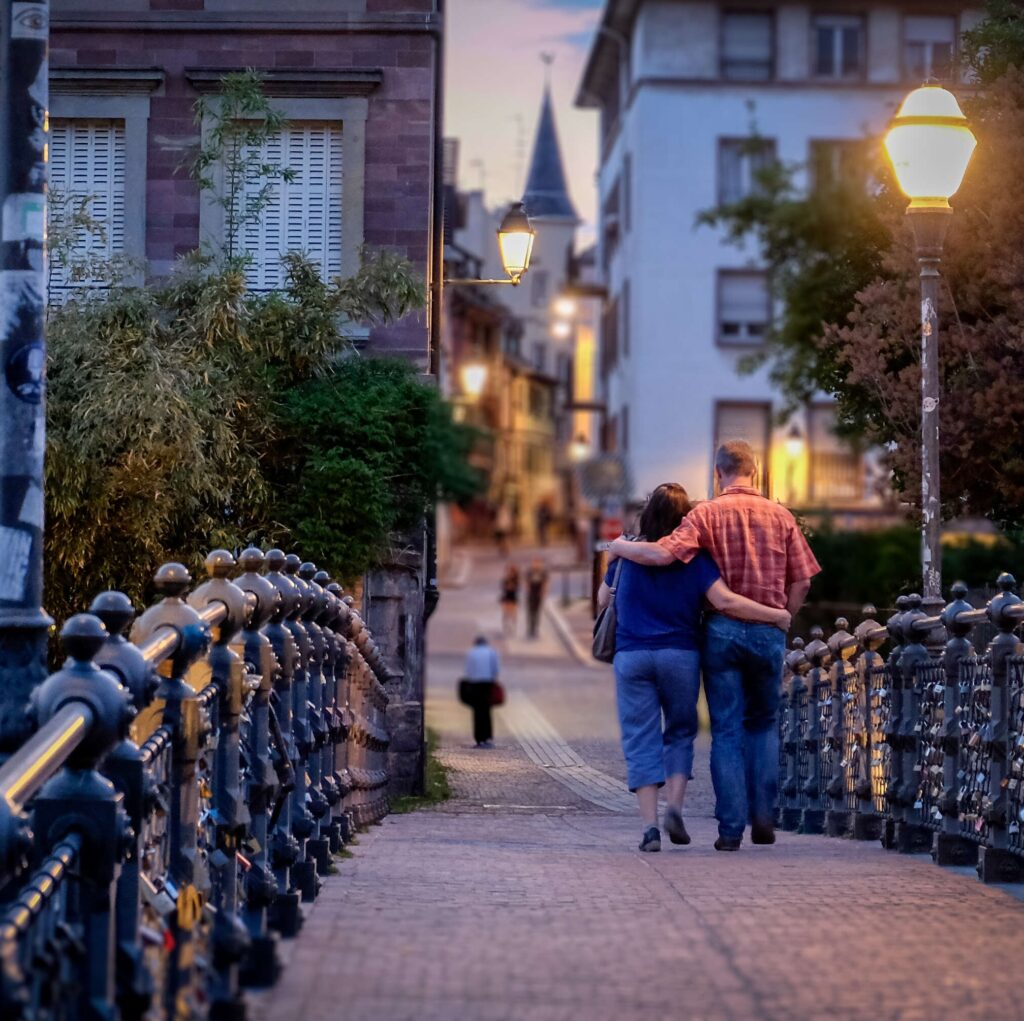
Strasbourg landmarks
Le Palais Universitaire
Built in 1884 as the main hall of the Kaiser-Wilhelm-Universität under the German Empire. Today it houses the art, history and theology departments of the University of Strasbourg.
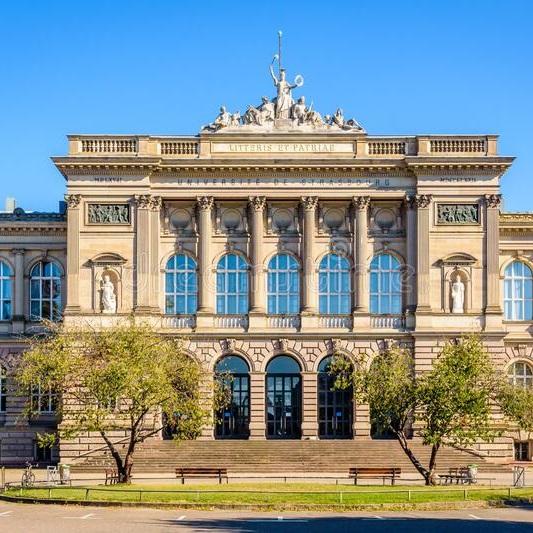
La cathédrale Notre Dame de Strasbourg
A church has stood on this spot for over a millenium. The late gothic facade is made of pink sandstone. At 142 meters, the spire is the highest in France. It is the largest building in the world constructed entirely in the Middle Ages.
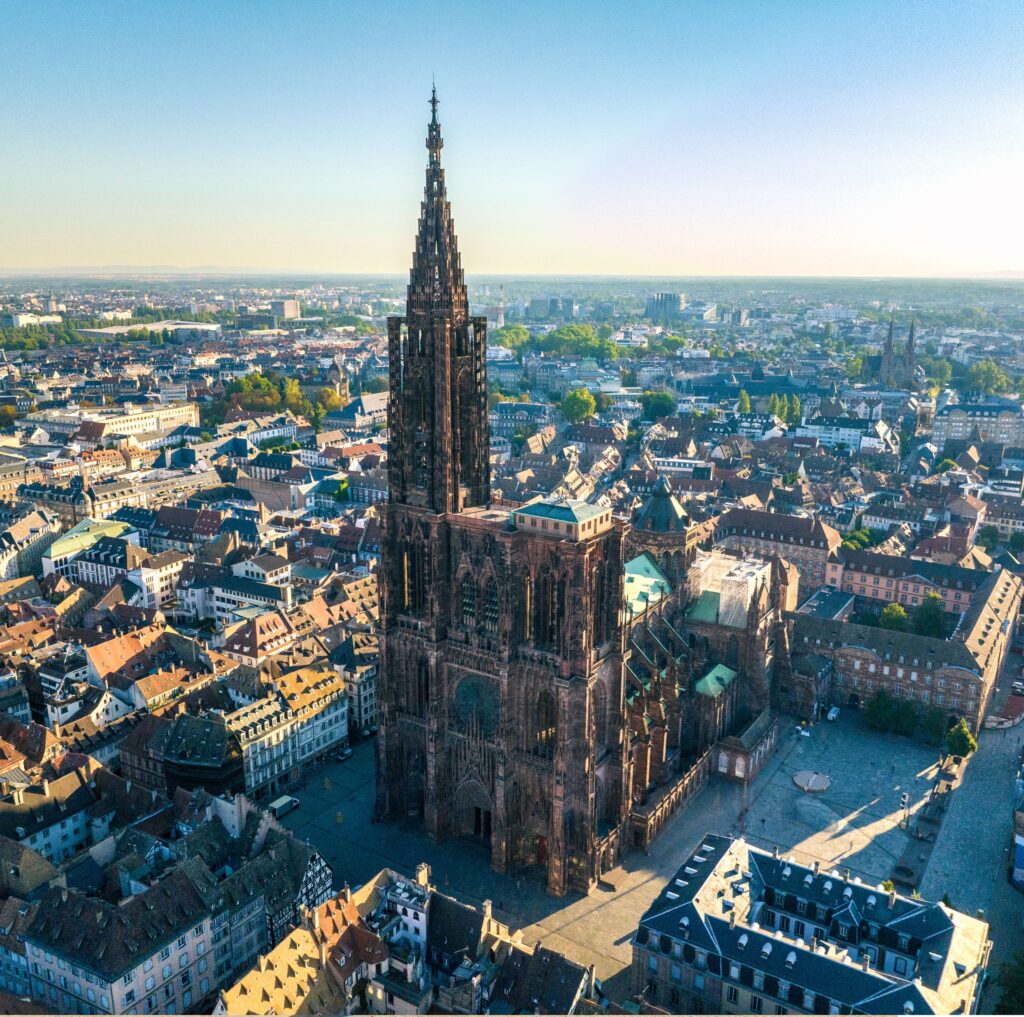
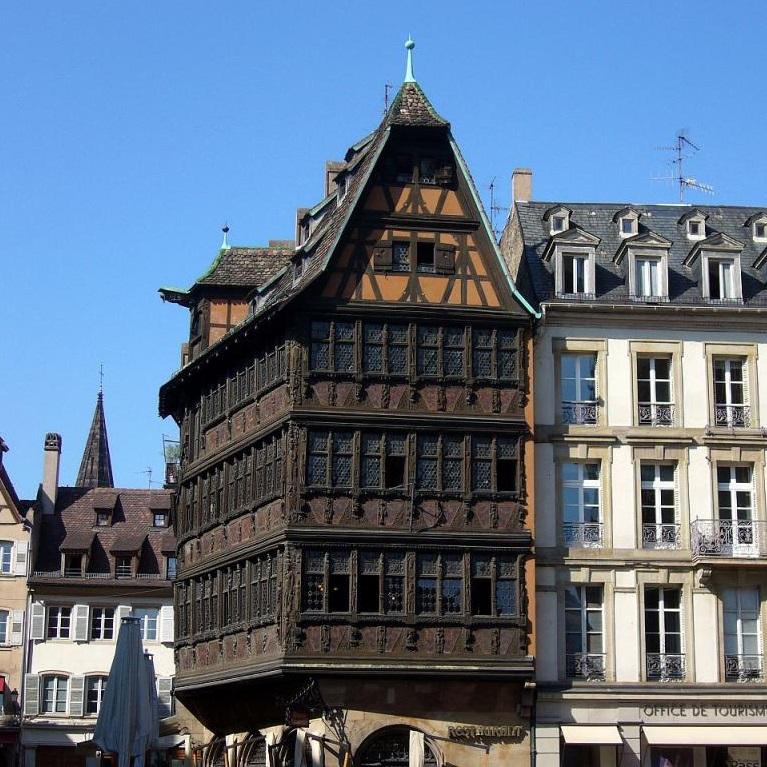
La Maison Kammerzell
Built as a private house in 1427, it is Strasbourg’s oldest building still standing. Today is houses a restaurant and hotel.
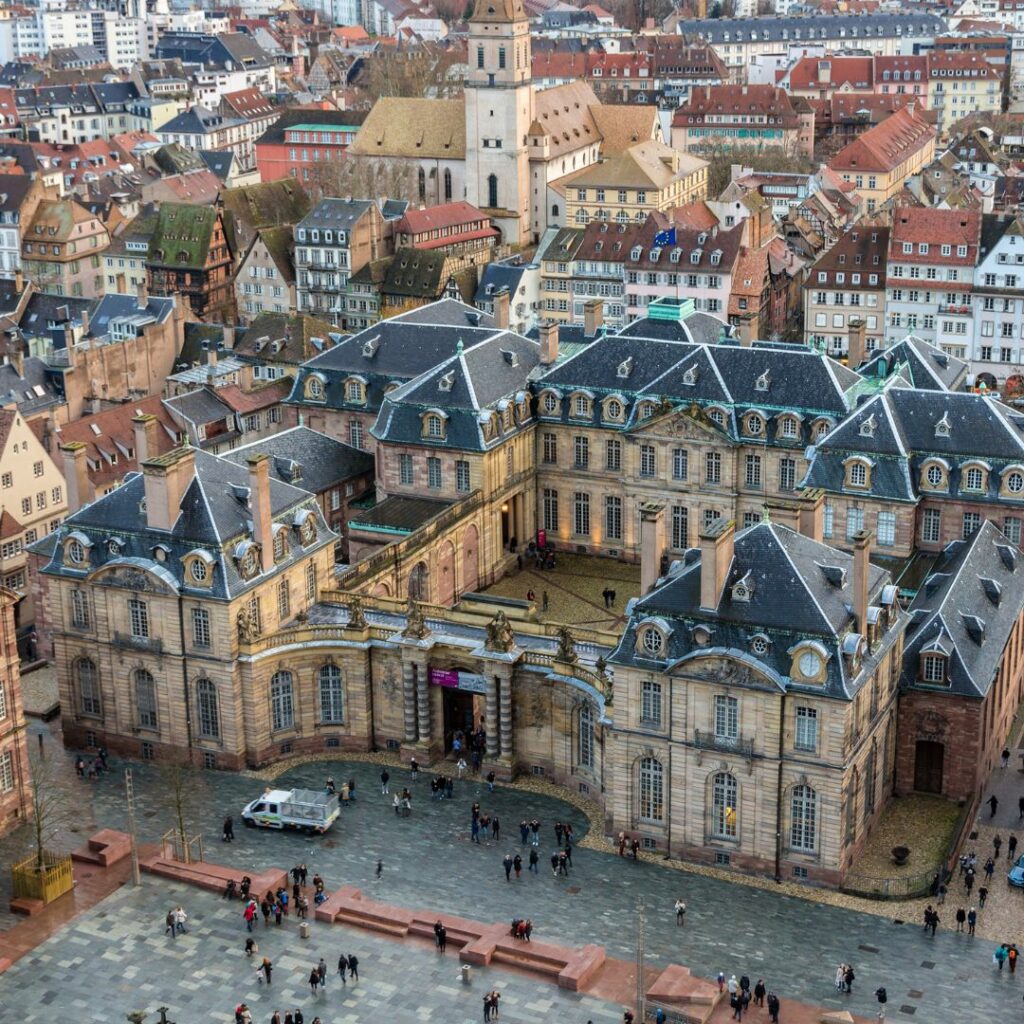
La Palais Rohan
In 1742, the prince bishop of Rohan completed this palace next to the Cathedral as official residence. Today it contains three museums.
European Parliament, Louise Weiss Building
Inaugurated in 1999, the EU Parliament building has exposed beams on the upper floors to evoke the unfinished nature of European union.
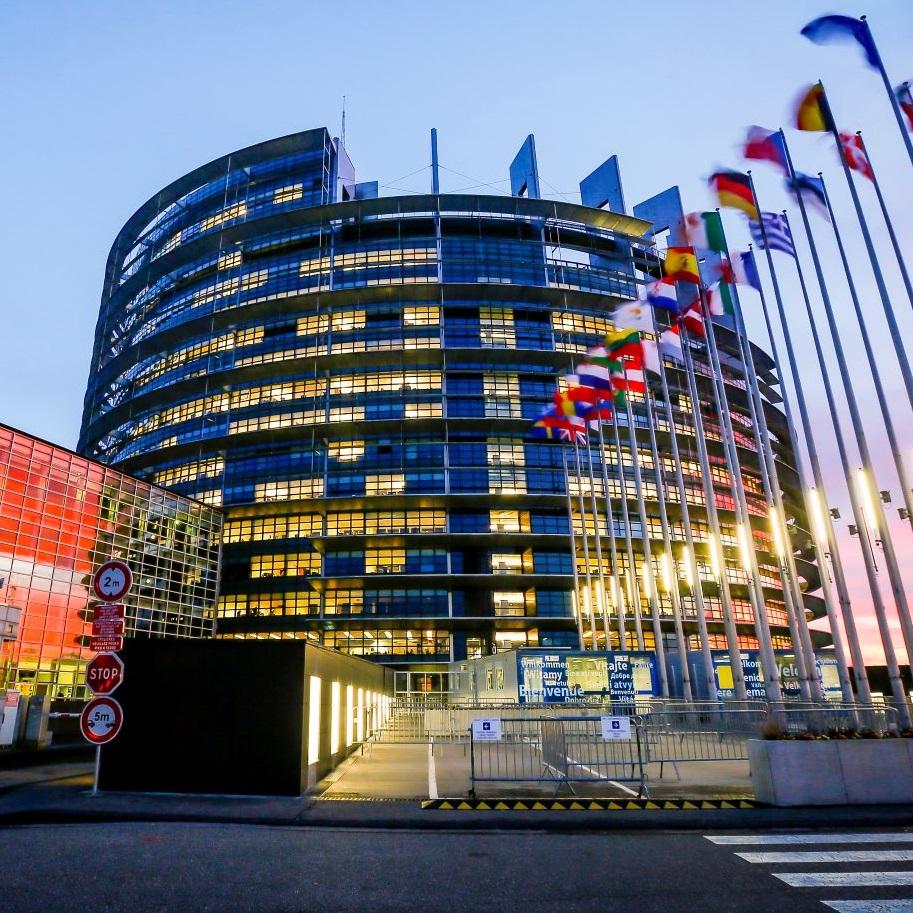

Rhine Port
Strasbourg is the second largest port in France. The Rhine river brings shipments from the North Sea, 400 miles away !
Neue bau
A masterpiece of Renaissance architecture, the “New Building” was built in 1582 as part of the city hall. It was ransacked during the French Revolution and sold off at an auction. Today it houses the Chamber of Commerce.
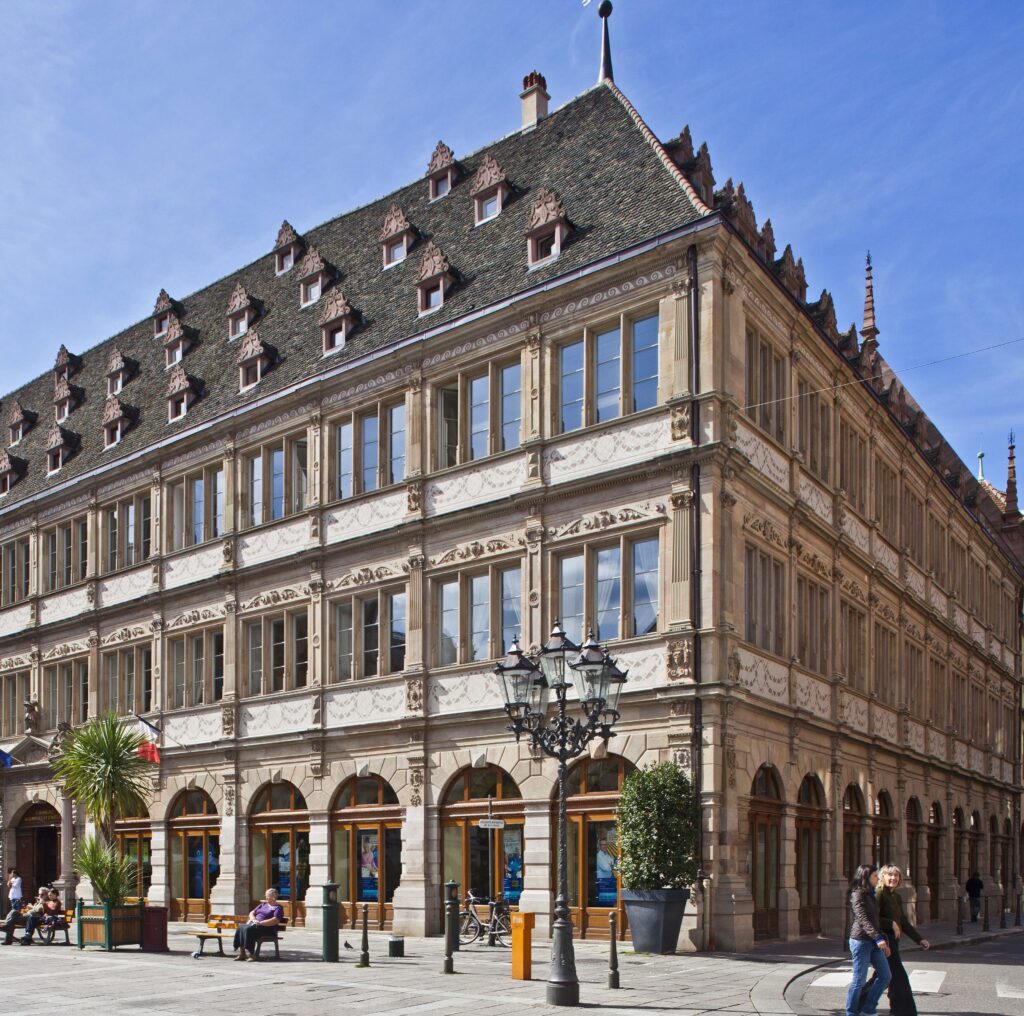
Église Saint Paul
Built under the German Empire in 1897, this was the Protestant church of the miltary garrison. The emperor had his own private pew.
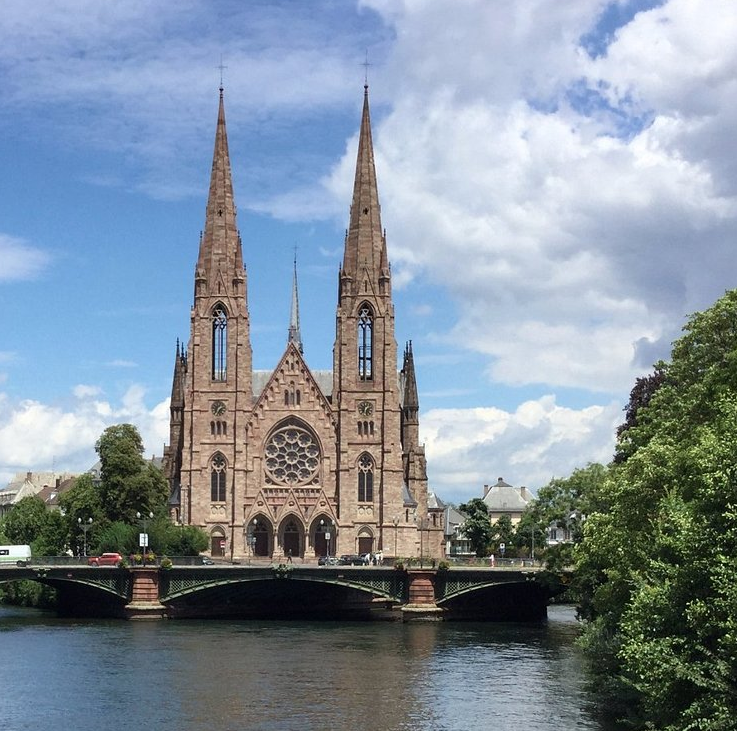
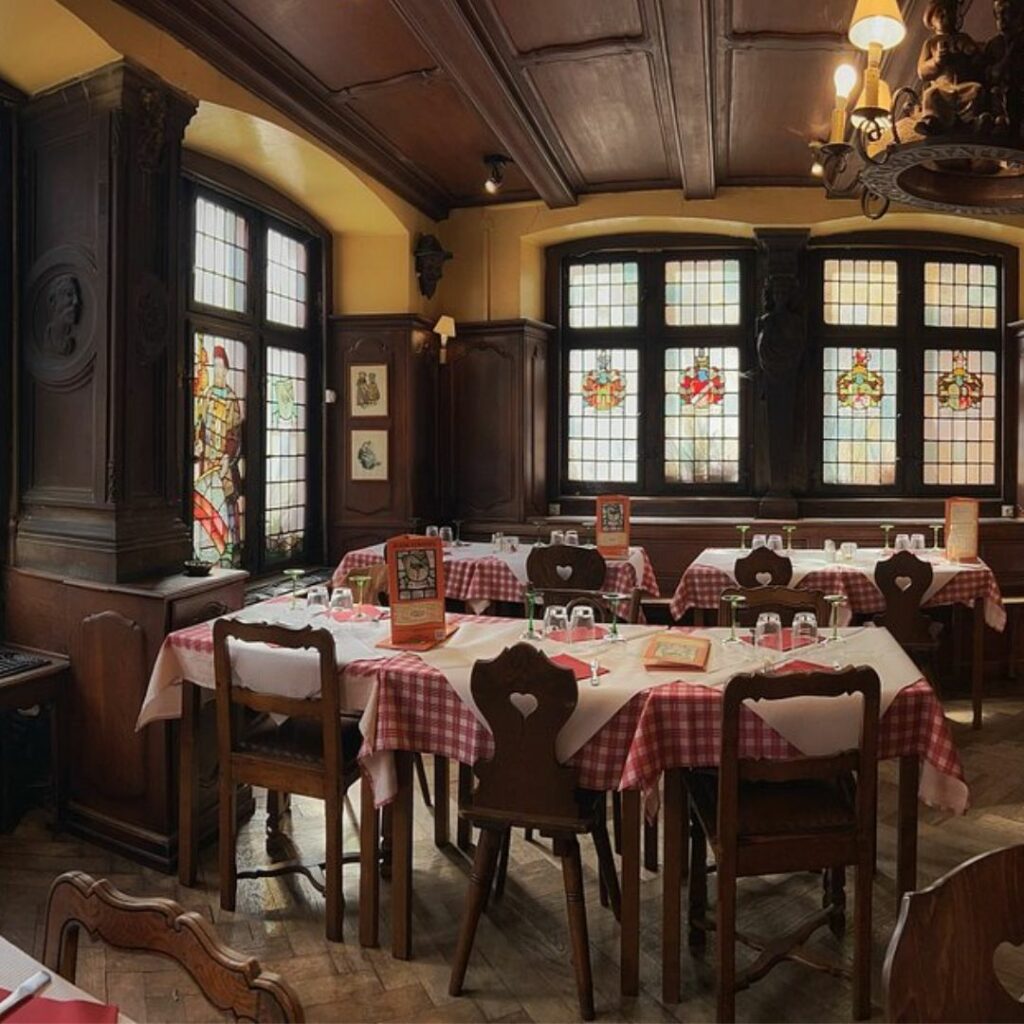
Zuem Strissel
One of the oldest continuously operating restaurants in the world ! Zuem Strissel still serves up choucroute and tarte flambée like it has for the past 700 years.
Le Neustadt
This neighborhood was built under the German Empire in the 19th century. Bourgeois apartment buildings and grand palaces line the monumental streets. The Accès office is located here.
